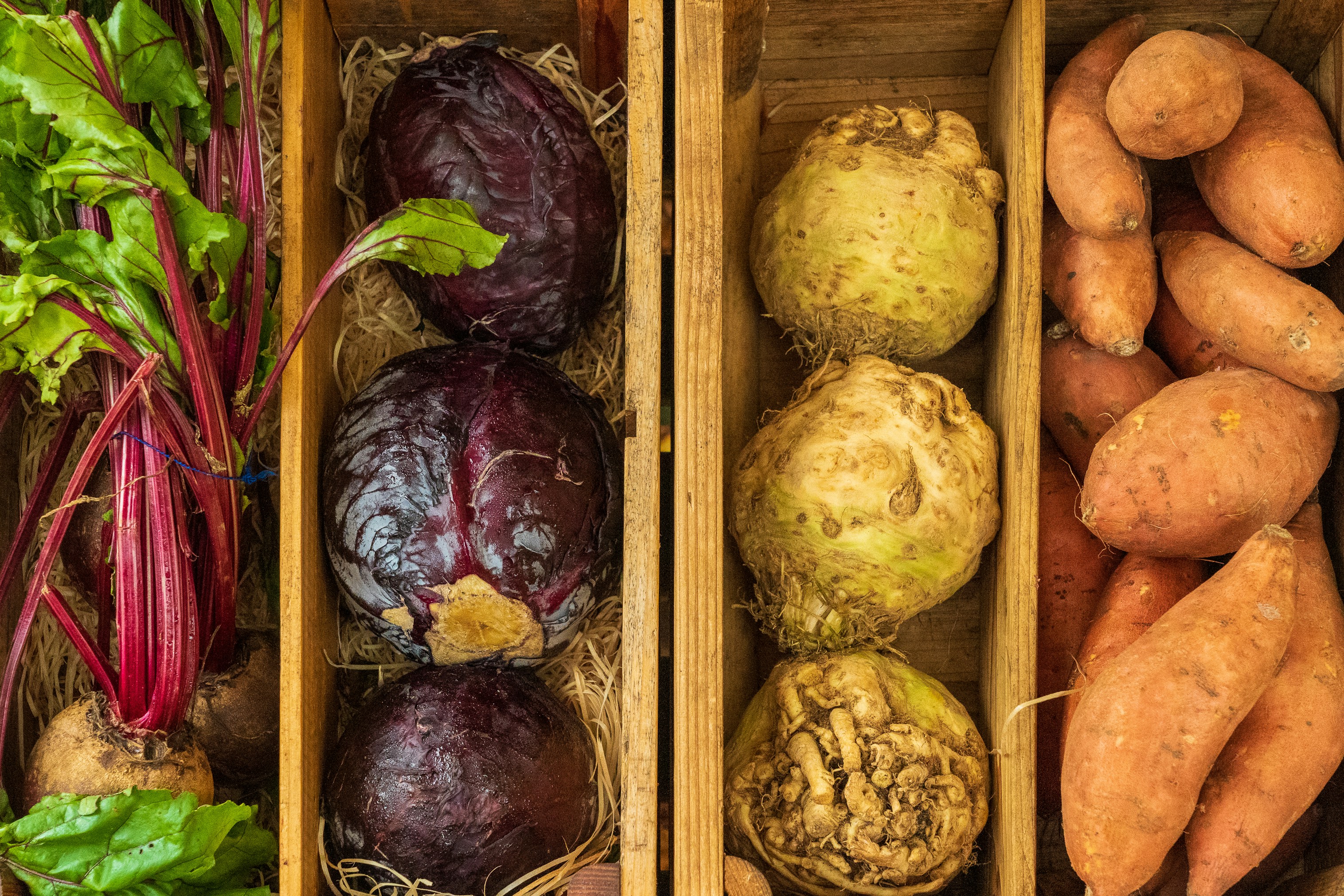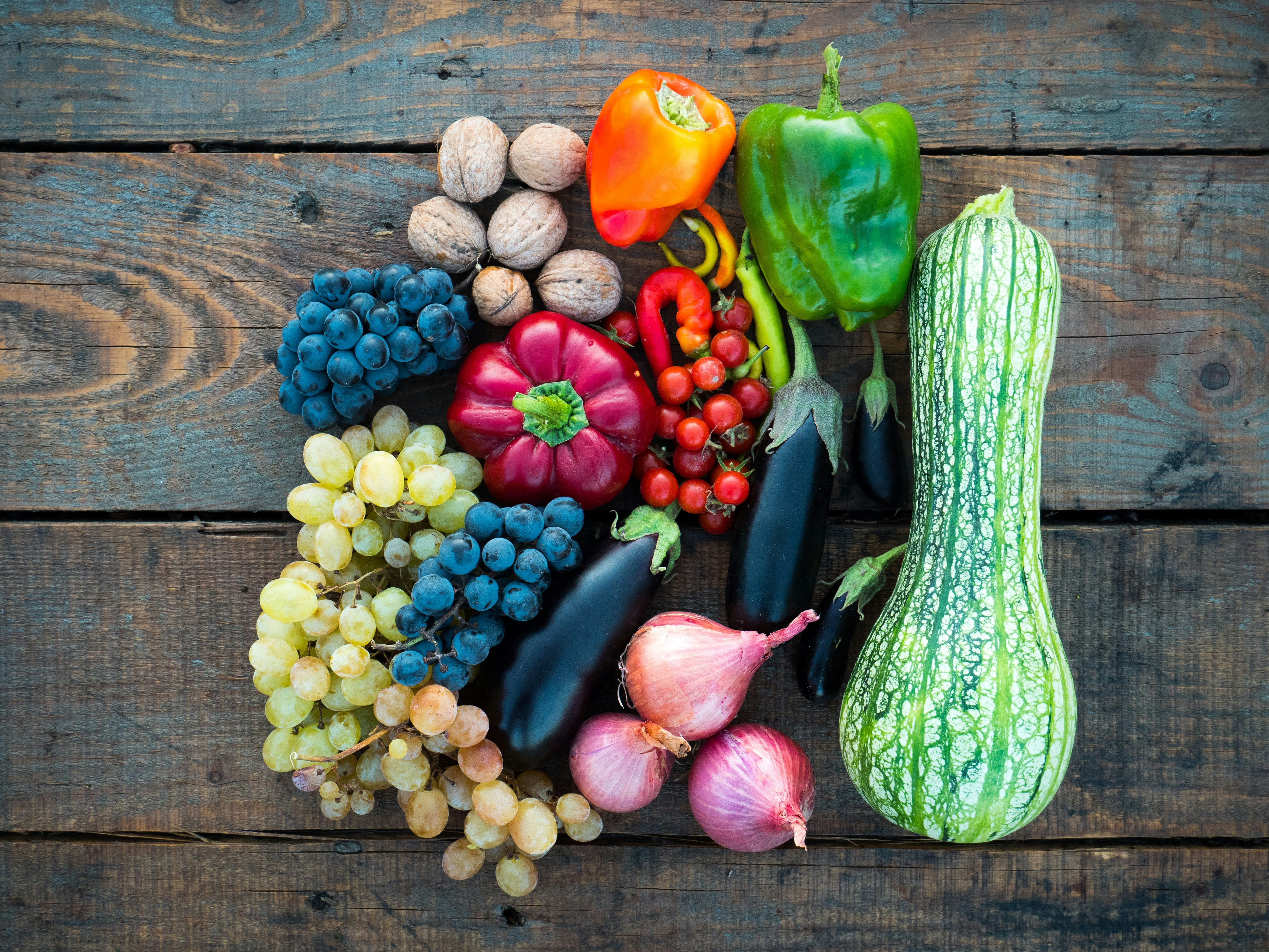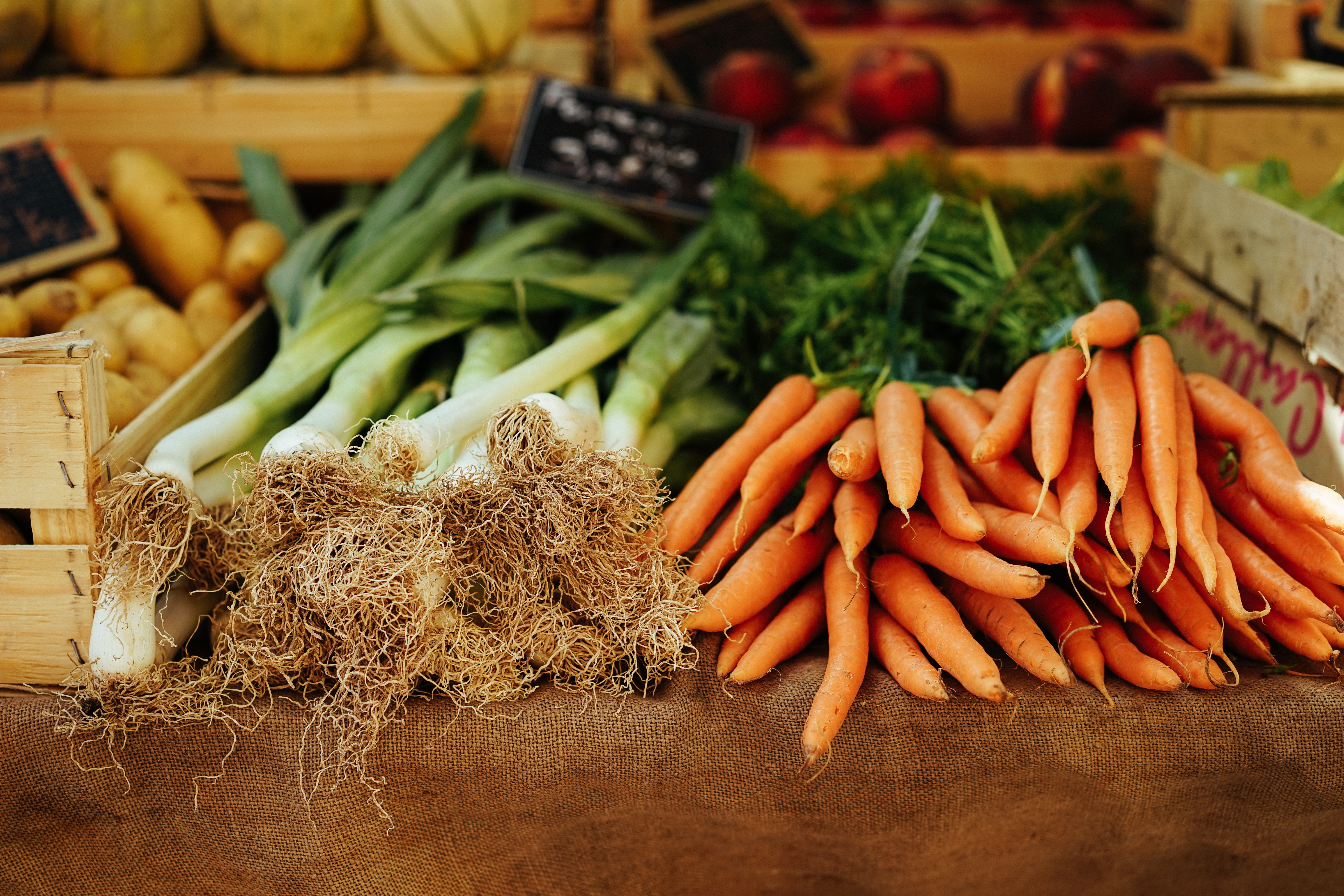Seasonal vegetables in February, what to look out for

As winter maintains its grip, the month of February offers us a colourful array of vegetables that bravely resist the cold. At a time when nature seems to have gone to sleep, market stalls are overflowing with nutritious treasures that bring a breath of fresh air to our plates.
Let's fill these winter months with an exploration of February's vegetables, culinary gems that bear witness to nature's robustness and promise a palette of flavours as comforting as they are invigorating. Get ready to taste some of the delights that the cold season has to offer.
5 good reasons to eat seasonally
Before we go in to which seasonal vegetables to choose this February, first let's look at some of the benefits of eating seasonally:
1. Seasonal ingredients taste better
Food harvested when ripe tastes better. There seasonal February fruits and vegetables have had time to develop their full flavour in the soil rather than on the supermarket shelf. They're crunchy, juicy and full of colour.
2 Fresh food contains more nutrients
Plants gain their nutrients thanks to sunlight and quality soil. When food is harvested in season, the plant has received more sunlight and has had more time to develop healthy nutrients.
3. Seasonal food is cheaper
You'll often find that seasonal produce is cheaper, and not just because of shorter transport distances. When the perfect month hits there is often a surplus of seasonal ingredients, so the prices go down. If you go to a weekly market, you can keep an eye out for falling prices. As soon as a product is out of season, the price rises again.
4. The environment is protected
Seasonal food requires less human intervention. There's no need to waste energy heating a greenhouse, because seasonal crops can be grown outdoors. Seasonal foods are also synonymous with regional products, which don't have to be transported to the other side of the world. This is good for the environment, not only because of the reduction in CO2 emissions, but also because less packaging material is needed.
5. Buying seasonal products guarantees variety
If you buy seasonally, you'll need to adapt your recipes every couple of months. You won't be eating the same fruits and vegetables in September that you can enjoy in December. This allows you to try new dishes and ingredients all the time. Eating a variety of different fruit and vegetables is also a key part of a healthy diet.
What fruit and vegetables grow in February?
Winter is often seen as a dull period in the plant world, but it also brings a surprising diversity of vegetables and fruit to brave the freezing temperatures.
Among the stars of the cold season are resilient vegetables such as cabbages of all kinds, from robust kale to delicate cauliflower. Nutrient-rich root crops such as carrots and parsnips also thrive in cold soil. As for fruit, carefully stored apples retain their sweet crunch even into the depths of winter.
Onions become a valuable centrepiece in the colder months. Their ability to be stored for long periods make them an essential food in winter cooking, adding a robust, pungent flavour to a variety of dishes.
A list of Swiss fruits and vegetables available in February:
Swiss vegetables |
Swiss fruits |
Swiss herbs |
|
|
|
About Powermeals
Powermeals is a ready-to-eat meal delivery service. Our dishes are made with many different seasonal fruits and vegetables all cooked from scratch in our Swiss kitchen, no processed food in sight.


